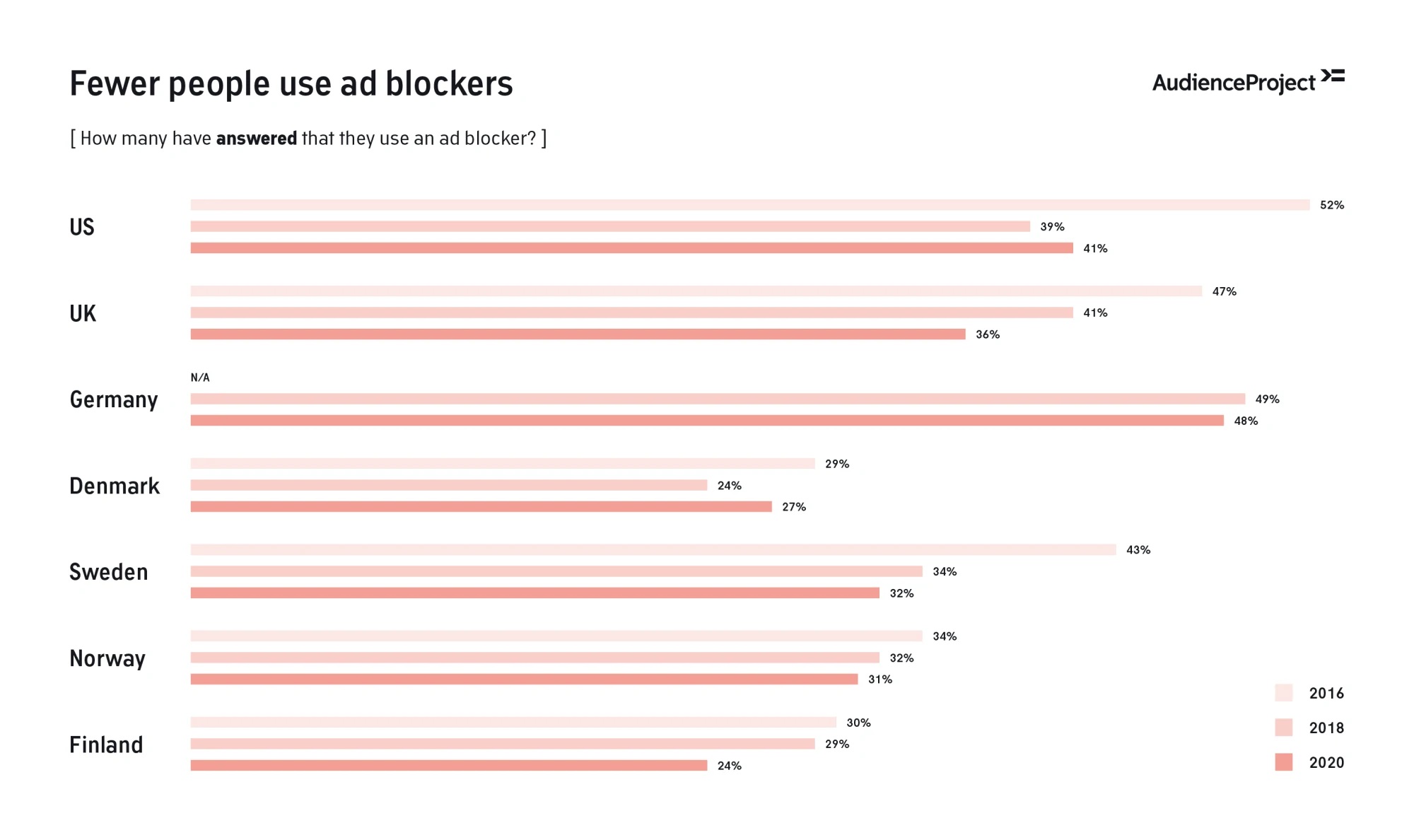A new study has shown that ad block usage is dropping, raising the question of whether ad blocking has reached its peak. But this is not simply a case of fewer people installing ad blockers, it’s a shift in how people are accessing the internet.
The key takeaways:
- From 2016 to 2020, the share of the online population using ad blockers has decreased across all countries, according to the survey which was completed by more than 14,000 people.
- In the US where ad blocking is most prolific, the number of people saying they use an ad blocker has dropped from 52% in 2016 to 41% in 2020.
- Publishers who block access to users with ad blockers are mostly seeing success with whitelisting requests, with 68% of people in the UK and 63% in the US actively whitelisting a website when asked.
Yes but: Popular browsers like Firefox and Chrome have been dealing with bad ad experiences themselves, automatically blocking some types of ads.
- Google Chrome this week has been rolling out a new feature which blocks ads using an “egregious” amount of network bandwidth or battery power
- Chrome has been working on conquering bad ads for a while – it blocks “annoying ads with flashing graphics or autoplaying audio” and sites with ad walls by default on mobile
- Opera has had ad blocking baked into its browser since 2016
- Firefox and Safari have blocked third-party ad trackers by default since 2019 – something that Chrome will also be adopting in the next two years
This isn’t a new phenomenon: pop-up ad windows are a thing of the past thanks to the actions taken by browsers.
According to AudienceProject’s figures, the picture is more complex when it comes to sessions blocked by ad blockers, which would include browser-blocking actions.
- In Germany, Sweden and Finland, there’s been a small increase in the share of sessions blocked on the computer, but this has decreased in the US, Denmark, Norway and the UK
- Sessions being blocked on mobile are also decreasing in Europe, despite the rise in mobile browsing; mobile now accounts for over half of all traffic worldwide. But in the US and Sweden, there is still a small increase in the share of ad sessions blocked on mobiles
The big picture: AudienceProject has said that despite the majority of people still having a negative attitude towards ads on websites and in video, fewer people are annoyed with the ads they are exposed to.
Ad blockers are a response to an industry-wide issue, so if fewer people are feeling the need to install them, the implication is the overall ad experience is improving. Whether that’s down to browsers doing more of the heavy-lifting or the industry improving is still up for debate.










